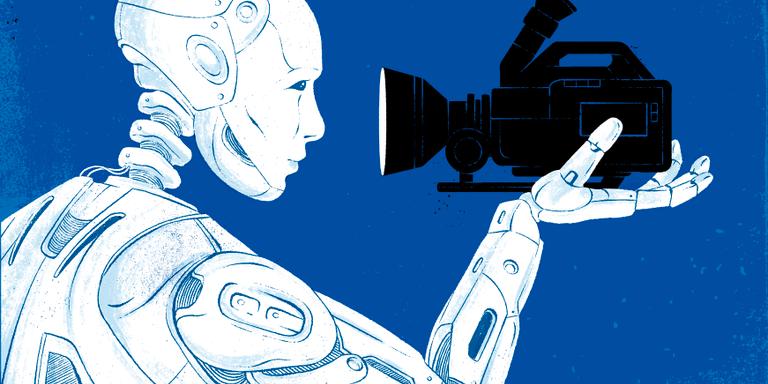


AI and culture, friends or foes?
InvestigationChatGPT has made us realize that we're living through a cultural revolution. Between fascination for creative opportunities and fear of the programmed obsolescence of its professions, it's a time of change for the arts and creative industries.
"We try not to be afraid," said Steve Carell, in French. Constantin Pappas has seen many technological revolutions in his 40 years as a dubbing stalwart across 35-millimeter reels, video and digital. But, for the first time this summer, he felt like he had to restart his B&B project in the countryside. And AI can take the blame, with its immediate automated translation, actors with faces made eternal, the duplication of extras and algorithm-generated scenes.
Jean-François Bonnefon, director of research in cognitive psychology at the Toulouse School of Economics, said, "We're about to witness an upheaval in human culture which, in terms of its importance, is the equivalent of the return of the explorers from China in the time of Marco Polo, their arms laden with novelties such as paper money and the invention of the printing press by Gutenberg. All the great culture shocks known to European history are going to be concentrated in a few years."
As seen with the five-month strike that brought Hollywood to a standstill, the world of culture has turned upside down in the face of the programmed obsolescence of its professions. "The only thing," Pappas said, "is that if Robert De Niro was told: 'Your voice is going to be used in 37 countries in 37 languages,' I'm not sure he'd accept. Or he might ask for such a phenomenal sum that dubbing would remain a more economical solution."
The arrival on the market of ChatGPT at the beginning of the year was a wake-up call. This fall, not one film festival, not one publisher's meeting, not one musical gathering doesn't feature a round table on artificial intelligence. The word "replacement" keeps coming up everywhere. Civilization is threatened by the advent of a world of algorithms. "The fear of a culture that we think threatens us, even if it's a question of stereotypes or prejudices, is even more accentuated with AI because nobody really knows what machine culture is like. And there's nothing to hold on to," said Bonnefon.
Technophile economists may well predict that AI will also create jobs, according to Schumpeter's theory of creative destruction, but the fear is there. All the more so as, this time, it's no longer operational jobs that are being targeted, but decision-making and creative jobs, which previous generations had favored, and which seemed to us to be the most inextricably human. And behind this fear lies a much deeper, muted sense of replacement: that of the human being itself, the extinction of our species.
'An archaic fear'
You have 86.98% of this article left to read. The rest is for subscribers only.
